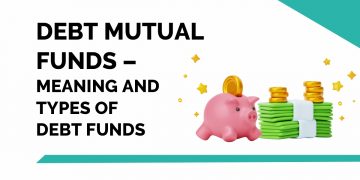The taxpayers are well aware of the pinch of paying income tax.
Of course it is our duty to abide by the Government’s rules and regulations, still, it hurts.
How about earning and not paying income tax at all?
Yes, you read it right.
In this article, we will be discussing the incomes that are 100% tax-free.
It means that even if you have earned that income, you need not pay income tax on those incomes at all.
Also Read: 5 Simple Steps To Pay Income Tax Online
So, let me walk you through the various kinds of income that carry NIL taxation.
Sources of Tax-Free Income
1.Interest Income on savings bank account:
When you maintain a savings bank account, you earn an income called interest income on the balance of your savings account.
Know More: How to Open a Bank Account?
This interest income is considered to be part of your total income and is also subject to taxation.
However, as per section 80TTA of the Income Tax Act, 1961, interest income up to Rs. 10,000/- is exempted from taxation.
For example – Mr. X earns an interest income of Rs. 25,000/- from all of his savings bank account. Then the taxability will be limited to Rs. (25,000 – 10,000) = Rs. 15,000/-.
Hence, Mr. X will pay tax on Rs. 15,000/- only.
2. Life Insurance – Claim or maturity amount received
We get a benefit of tax deduction under section 80C of the Income Tax Act, 1961 for the amount of life insurance premium paid.
Over the years several amendments have come in this regard.
Apart from the 80C deduction, the claim or the amount received on maturity is also 100% tax-free subject to the condition that the premium paid should not exceed 10% of the sum assured.
For example, Mr. Y pays a premium of Rs. 10,000/- and the sum assured is Rs. 1,00,000.
This means that the premium paid is 10% of the sum assured, which satisfies the aforementioned condition and the sum assured shall be 100% tax-free.
Want to know more about Tax Planning? Enroll in: NSE Academy Certified Financial Planning & Wealth Management course on Elearnmarkets.
On the other hand, if the policy premium is Rs. 10,000/- and the sum assured is Rs. 50,000, the entire sum assured shall be subject to taxation, as the premium exceeds 10% of the sum assured.
Read More: Know the Future of Life Insurance? Also, Cover its Benefits
Employee Provident Fund (EPF) Account – subject to money withdrawn after a certain period
In case you withdraw the money from EPF Account after a period of 5 years of your service in the organization, you fetch the income tax relaxation in that case.
This is especially for those taxpayers who withdraw money before the said period, say, after 3 or 4 years and face unnecessary taxation.
3. Dividend received exempted under section 10(34) of the Income Tax Act, 1961
The dividend received from our investments i.e shares or equity mutual funds (dividend plan) are totally exempted from taxation.
4. Gifts
An amount received by way of gift from your friends or relatives on occasion of your marriage is tax-free.
My colleague Rahul got married last month and received a total amount of Rs. 15,00,000 as a gift on his marriage from friends, relatives, and other guests. This amount received by Rahul was totally exempted from tax.
5. In case you are a partner of a firm, the share of profit received is exempted from tax
For example – XYZ is a partnership firm. X, Y, and Z are given Rs. 10 lacs each as their share of profits.
This share of profit will not be taxable in the hands of the partners.
Bottomline:
Kindly note that the above lists are not limited to the ones mentioned above.
Apart from the several 100% tax-free exemptions available, the above mentioned are the most important ones.
So this is for all the taxpayers who may not have been aware of the exemption part.
Next time, when you file your income tax return, ensure yourself not to forget to take the benefit of the 100% tax-free category.
Happy Learning!!








